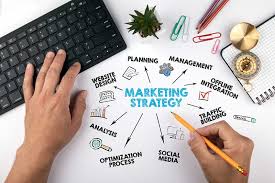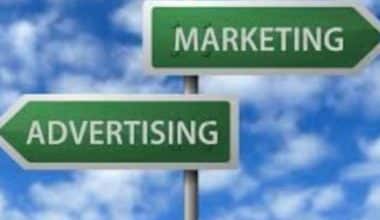Despite the wide range of jobs that many of these apps can handle, few are one-size-fits-all quick fixes. A short internet search for sales software will yield a dizzying quantity of results, making it difficult to know where to begin.
In this article, we’ll clear up some of the most common misconceptions, such as how a sales software platform may benefit your business and how to select the best one for your team. But first, we’ll go over 10 of the best sales CRM software available, along with a handy comparison chart of price points, trial durations, and top features.
10 Best Sales Software Tools
#1. Freshsales
Freshsales is a feature-rich sales management software platform that organizes the sales force and automates the whole sales cycle. They offer advanced capabilities that employ AI to manage contacts, accounts, and sales funnels more efficiently, from lead creation to the last phases of closing a transaction.
Because the sales process necessitates continual monitoring of leads, Freshsales facilitates this by categorizing contacts based on page views and email activity, as well as their behaviors while on the product website. Furthermore, thorough customer profiles may be established on the platform, providing sales teams with critical knowledge of how to select the correct pitch that addresses the customer’s pain areas.
#2. HubSpot Sales
HubSpot Sales is a smart eCommerce product that allows you to create and automate relevant sales processes. The best thing is that even sales representatives with no coding experience may effectively use this software. It can save them a lot of time by automating critical sales-related processes. Another significant advantage is the ability to automate follow-up emails and reminders without making them appear tedious and indifferent. Report templates and custom reports, Outlook and Gmail connectivity, inbox profiles, pipeline management, and sales automation are all essential elements. The provider provides a fantastic free trial that allows you to test out all of the software’s essential features first.
HubSpot Sales software integrates seamlessly with HubSpot CRM, allowing you to track your sales funnel as well as the performance of your salespeople. If your sales management needs are minimal, you can go for the free subscription. However, if you want advanced capabilities, the Pro plan costs $50 per user every month.
#3. Salesforce CRM
Salesforce CRM is a market leader and the most used sales CRM software. This award-winning platform is capable of tremendous automation. Sales agents can improve their efficiency by maximizing those. Furthermore, they can use it to select the most valuable leads on which to focus their efforts.
Furthermore, Salesforce CRM has other technologies that might help sales agents be more productive, such as the Salesforce Sales Cloud. This can generate real-time client data to deliver on-demand intelligence. Aside from that, it may generate reports, sales predictions, and territory models for users to use in making key decisions.
Additionally, enterprises can expand the capabilities of Salesforce CRM by connecting it with other Salesforce family applications. Furthermore, it may integrate with third-party programs such as accounting platforms, ERP software, and helpdesk solutions. Customers can unlock additional options starting at $25/user/month.
#4. ConnectWise Manage
ConnectWise Manage attempts to combine disparate activities into a single business management platform. It removes the need for several systems by integrating project management, sales management, customer service, billing processes, and other functions into a single system. It also captures and stores all of your data, allowing you to simply acquire full visibility over all of your activities.
This comprehensive project management platform enables you to create, manage, and assign projects with a variety of components. You can keep track of supply and purchase orders, maintain client connections, and even plan marketing campaigns. Its robust reporting function enables you to generate useful information about the development and status of your numerous projects. Data-driven decisions can be made in real-time to maximize possible possibilities and reduce difficulties.
#5. Pipedrive
Pipedrive is the answer if you need to manage your sales pipeline and CRM chores. It ranks high on our list of the top ten best sales software solutions. The software is built on an activity-based sales methodology and streamlines the sales process to help you turn potential offers into successful sales. Roles and organizational hierarchy, full customization, a rich API, contact history, goal setting, and reporting are among the top features. The seller also provides a fantastic free trial that allows you to test out all of the app’s essential features first.
Pipedrive sales software integrates effortlessly with popular email clients, CRM software, and third-party programs like Zapier, Trello, MailChimp, Google Maps, and others. There is a 30-day free trial and three premium packages, with the Silver plan starting at $10/user/month (annual billing).
#6. Zoho CRM
Zoho CRM is a web-based sales CRM software designed for small and medium-sized organizations. Its key functionality is a lead management and contact management module that allows you to keep track of all your prospects and existing customers. It also provides powerful sales force automation and bespoke workflow management tools, allowing it to swiftly adapt to your existing procedures. It even includes sales tracking and forecasting capabilities to help you better understand your sales success.
If you’re interested in this solution, Zoho CRM has a free plan that’s ideal for small teams that only need the fundamental CRM functions. Of course, if you need more advanced features or have a larger customer base to manage, Zoho CRM also has subscription plans ranging from $18 per person per month to $55 per user per month. You may also use their free trial plan to get a better idea of what they have to offer before committing to a subscription plan.
#7. Sales Creatio
Sales Creatio is a full-service sales automation software that helps small and medium-sized enterprises manage their complete sales cycle, from lead management to invoicing and CRM functionality. It’s a low-code solution with useful tools to increase your sales productivity and make managing your sales operations easier. Furthermore, it enables you to integrate all of your sales channels into one platform, allowing for effective coordination between your sales team and distributors.
Sales Creatio’s collaboration features make it easier for your team to work together. It offers a graphic team calendar, for example, where you can organize work schedules and meetings and get a detailed picture of ongoing tasks and activities. It also has a communication panel through which you can collaborate with your team and clients, make calls, handle emails, and receive social media updates and notifications directly from the platform.
#8. Pipeliner
Pipeliner is a CRM program designed to be powerful sales software. It seeks to increase your and your customers’ engagement. Because the sales software platform has a user-friendly interface, you can fully utilize its functionality even if you do not have a dedicated administrator. You’ll only need a few hours to learn the drag-and-drop interface. The dashboard options make it simple to fine-tune the entire software.
The tool allows you to manage and monitor all phases of the sales pipeline. That means you can track your customers’ full customer experience, from lead generation to repeat purchases. The integrated reporting capabilities also provide a big-picture perspective, so you always know where your business is going. You can also view the performance of your members, predictions, prospects, and other business intelligence information.
#9. Katana
Katana is a material demand planning software that is cloud-based and ideal for small and medium-sized businesses. The platform centralizes various production data and procedures. Using a single application, you can plan, schedule, manage, and alter your manufacturing and inventory processes.
On the Katana dashboard, you can instantly discover opportunities and potential difficulties. It gives you a complete picture of your orders, processes, and deadlines. The platform also interfaces with a variety of sales and business software, including Xero, WooCommerce, BigCommerce, Shopify, and Quickbooks. That suggests your store is working smoothly and efficiently.
#10. Salesmate
Salesmate is a comprehensive sales software system that equips sales teams with all of the tools they need to manage the sales process. This software offers capabilities that allow sales teams to stay in touch with customers, leads, and prospects at all times. Calling and messaging capabilities are included in the system, so you don’t need to purchase additional software to call consumers.
Salesmate CRM works with over 700 other software and applications, including Google, Microsoft, and Zapier. Sales teams can track contacts, prospects, sales activities, and discussions using the sales pipeline and activity tracking function. These solutions enable quick access to critical data and give agents more time to get to know their customers.
How Does Sales Software Benefit Your Business?
No matter how amazing your product or service is, your staff will not be able to realize their full potential if their schedules are clogged with time-consuming tasks. Sales software relieves your salespeople of time-consuming activities, allowing them to focus on what they’re truly there to do: sell.
Here are the main advantages that a small business may expect from a good sales software platform:
#1. Accelerated sales process
Reps can use software to easily set up, visualize, and manage their workflow. Reminders and automation assist salespeople in keeping leads warm and increasing their velocity through the pipeline.
#2. Increased Reps productivity
Reps may save time by eliminating tiresome, repetitive processes such as data input and follow-up emails with the correct software. Using your preferred sales platform to set up automation allows salespeople to boost their productivity and complete more deals.
#3. Automated Reporting and Analysis
Setting up automated workflows in sales software is simple, allowing teams to trigger reporting and analysis at certain points in the sales process.
#4. Centralized Knowledge Management
Rather than accessing a maze of spreadsheets and file folders, sales staff keep track of customer data in a single location.
#5. More precise predicting.
Say farewell to the gut check. Every quarter, managers can rely on data-driven, precise estimates.
#6. Team Collaboration
With chat and email features and integrations, it’s easier than ever to stay in touch with your coworkers so that everyone can work together to reach quarterly goals.
#7. Customer loyalty and retention
Customers desire a personalized sales experience and a representative who understands their needs. Robust sales tools enable convenient record-keeping and access at any time, letting customers know they are appreciated.
#8. Greater adaptability.
Because of the endless variety of sales software, teams have a lot of choice and flexibility in how and where they do business. Reps may operate from their home office, the cafe down the block, or on the road thanks to secure mobile and offline capabilities.
#9. Increased conversions.
With digitization, the sales process is faster and more fluid than ever before, resulting in increased conversion rates and happier clients.
What Makes Up a Good Sales Platform?
The sales software industry is vast. However, there are a few aspects that every platform should include for maximum efficiency and use. Keep an eye out for these critical solutions while seeking new sales functionality for your team.
#1. Analytics and Reporting
It is critical to get an accurate view of the company’s success. Your sales software, whether CRM, gamification, or anything else, should have a reporting and sales analytics tool to examine all of the data you’re feeding it. A better understanding of your sales analytics makes it easier to identify adjustments that will increase earnings and productivity.
#2. Security
Customers and team members alike rely on you to keep their sensitive information secure. When looking for sales systems, be sure the companies you’re considering ensure security.
Consider vendors who also provide secure customer service to Fortune 500 firms. If industry titans put their faith in a certain software platform, it’s a safe bet that you can, too.
#3. Integration with other applications
While no single platform can do everything, most sales systems have connections that allow you to interact with other sales tools. You’re probably already using a variety of software tools to manage your business. A good sales software platform will allow you to combine the tools you already use seamlessly, allowing you to keep things moving smoothly.
#4. Mobile connectivity
Reps no longer need to be in the office to accomplish their duties efficiently. Handheld devices are increasingly the norm for the contract signing, new customer enrollment, and content exchange. Mobile capability is more important than ever for sales systems.
How To Select the Best Sales Software Platform
There are numerous options available. Each vendor is doing all possible to demonstrate that they are the best providers available. However, not every platform will be suitable for you and your team.
Here are some measures you should take before committing to anything to guarantee you find the best fit for your business.
#1. Be truthful about the strengths and limitations of your sales cycle
Take the time to assess the present health of your business before investing in sales software. Ask each of your teams where they believe they are excelling and where they believe they need more assistance.
Make a list of your talents and shortcomings, and then research which sales platforms are best suited for those jobs. This may take some time at first, but the time saved by using your preferred platforms will more than compensate.
#2. Be honest about your IT capabilities
Even if software developers work hard to make their platforms user-friendly, there will always be a learning curve.
#3. Think about the future
If you have business goals, ensure sure any sales software you invest in now can be scaled to your needs. It’s pointless to master a software platform now if you’re going to abandon it later because it can’t keep up with your growth.
Even if you are currently running a small business, you can look into platforms used by larger corporations. Many suppliers offer smaller versions of their platforms, such as CRM for small firms. That is, you can learn the fundamentals and then go to more advanced sales software functions as your business grows.
#4. Combine your software alternatives
As previously said, there are numerous sales software platforms available. Even with integrations, if you use too many distinct platforms, things might become confusing. Remember that the point of adopting sales systems is to simplify the process and make operations run more smoothly.
Consider your requirements and look for software platforms with a variety of functions. Many CRM platforms, for example, offer add-ons for additional useful tools. The advantage of combining your sales solutions is that your staff will have fewer platforms to master. That is, your process will become more standardized throughout.
#5. Take a test drive
The best approach to finding out if a platform is right for you is to give it a shot. Most companies offer some form of free software trial, such as a free version for small teams or a free trial. Reduce your list of possibilities to the best ones.
Then sign up for a free trial and put in some serious trial time. Only by using the platform will you be able to determine whether it is the best sales software system for your team.
Which Free CRM Tool Should You Use?
Joining a free CRM system will streamline your processes and facilitate the advancement of your business if you’re used to tracking your leads and customers the old-fashioned manner, with notebooks and spreadsheets. Additionally, it marks the start of accumulating a body of data that you can examine, providing you with better business insights and enabling you to have a bigger impact.
Try out a few of these free CRM programs. Be sure to carefully review the pricing pages before making a decision. Make sure you have everything you need on the free plan and that the upgraded pricing model fits within your budget. Each app treats “free” in a slightly different way.
Which CRM Program Boosts Sales?
One special function that may be found in several CRM programs is sales automation. CRM software typically enables automation for a variety of marketing procedures. As a result, CRM programs like Freshsales CRM, Pipedrive, HubSpot, Salesforce, and Zoho CRM include tools for sales automation.
Which CRM Software Is The Best For You?
You can pick from a variety of CRM programs to manage and expand your organization. However, there are no accepted criteria for determining the finest CRM software available. The only person who could determine which is ideal for your company is you.
The CRM you use will rely on your business objectives and budget because every business owner has different demands. The first step in choosing the best tool for your business would be to determine your goals for purchasing CRM software.
Why Do We Need Sales Software?
Customers have come to anticipate speed and ease of use whenever they make a purchase in today’s world. Making an investment in sales software helps you stay competitive since it enables you to swiftly meet the expectations of your customers.
Your staff will appreciate any steps you take to make their workflow smoother, and this will be the frosting on the cake for your efforts. And happier teams make for better business.
What Should Your Current Sales Software Look Like?
The software you are using should accurately reflect your company’s current size as well as its customer base. Because there is no sales platform that is a “one size fits all” solution, you need to make sure that the platform you choose is able to deal with the volume of work that you anticipate.
Does Salesforce Have a Free Option?
In addition to its standard limited-time free trial CRM software options, Salesforce, the market leader in online customer relationship management (CRM), offers its complete CRM package to nonprofit organizations that have been approved for use at a price that is a fraction of its standard pricing model.
Sales Software FAQs
What is a sales CRM software?
It’s a platform that integrates all of your departments, from marketing to sales to customer support, and organizes their notes, actions, and KPIs into one system. Every user has direct, easy access to the real-time customer data they require.
What is a sales automation tool?
Sales automation tools are software that sales teams use to automate sales activities, from prospecting and nurturing prospects to closing.
What is the full sales cycle?
Prospecting, making contact, qualifying your lead, nurturing your lead, presenting your offer, overcoming objections, and closing the sale.
Related Articles
- What is Customer Relationship Management Tools: Definition, Process, and Examples
- CUSTOMER RELATIONSHIP MANAGEMENT SYSTEMS: Definition, Examples & Best Strategies
- Best Account Management Software For Your Business: Top 10 Reviews
- Best 10 Customer Relationship Management (CRM) Software For Businesses
- CLIENT MANAGEMENT SOFTWARE: Top 11 Picks For Your Business






